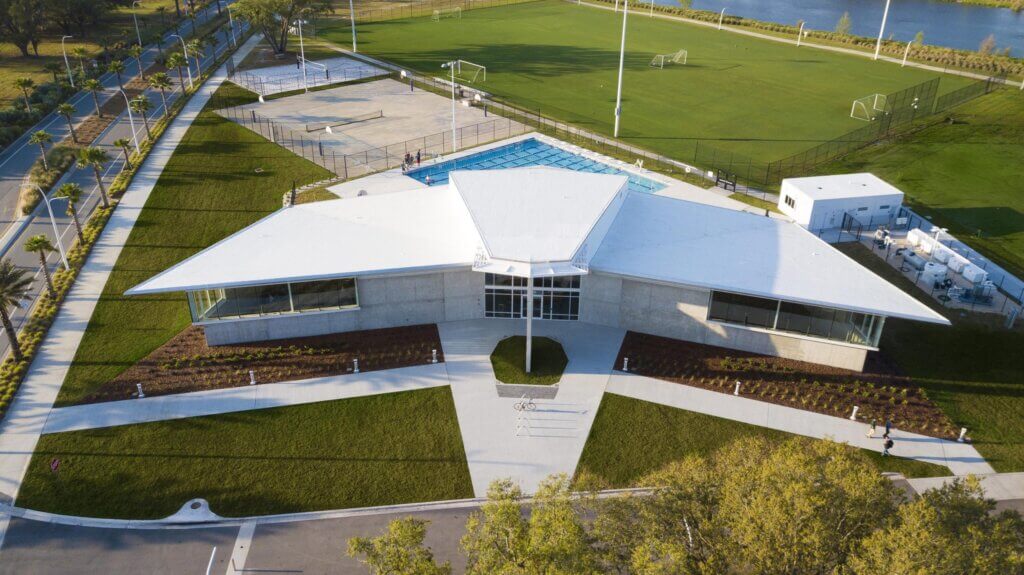The Health of Polk: Mental Health
Behavioral health, including mental illness and substance abuse, is the number one health concern in Polk County, according to the 2020 Community Health Assessment (CHA). Within that broad category, suicides, lack of mental health providers, and drug and alcohol abuse were identified as top concerns to be addressed to improve the health of Polk County.
The lack of mental health providers is a concern for many, especially because more than half of Americans will be diagnosed with a mental illness or disorder during their lifetime. Getting people to seek help, and ensuring they have access to care, is critical.
As part of our series to learn more about the CHA and the work being done by a variety of partners, this piece highlights the work around addressing mental health needs within Polk County.
“Stigma is still a problem with treating mental illness,” said Risdon Slate, a professor at Florida Southern College who served on the Polk Vision committee that has tackled this issue. “Lack of funding is a problem, as Medicaid expansion was rejected under the Affordable Care Act.”
With more money, Slate recommends that “we not only fund mental health treatment, but we also provide adequate transportation and housing.”
The Polk County Board of County Commissioners and Citizens Healthcare Oversight Committee members are using $45,000 in indigent care funds as part of a public-private partnership. Others who are contributing to the $50,000 project are Lakeland Regional Health, BayCare, AdventHealth and Central Florida Health Care.
The goal is to create a comprehensive behavioral health strategic plan for mental health and substance abuse services by the end of the year, then present it to countrywide stakeholders. Crescendo Consulting Group has been hired to complete a resource map and gap analysis, and suggest ways to improve services.
“Prior to COVID-19, the Polk Vision Behavioral Health Team identified the need for a comprehensive behavioral health strategic plan for mental health and substance abuse services. The pandemic and associated challenges, such as job loss, fear of disease and other uncertainties have raised these needs to another level,” said Kim Long, executive director of Polk Vision. “Concerns about a rise in domestic violence, substance abuse and suicides resulting from pandemic stressors will only increase the behavioral health needs of the residents of Polk County.”
To help address the concerns, Lakeland Regional Health, with support from the city of Lakeland, is constructing a 96-bed behavioral health center to better serve the inpatient and outpatient needs of the community. The $46 million Center for Behavioral Health & Wellness will be built near Lakeland Regional Health Medical Center and will treat adults and adolescents’ mental health problems, substance abuse, memory disorders and more.
Right now, Peace River Center (PRC), which has facilities in Lakeland and Bartow in Polk County, provides mental health services, substance abuse treatment, and crisis and victim services, along with Club Success (see below).
Drug and alcohol abuse occur when “frequent or repeated use of alcohol and/or drugs causes significant impairment, such as health problems, disability and failure to meet major responsibilities at work, school or home,” according to the 2020 CHA. They were characterized as the two most harmful behaviors to the health of our community, according to the 2019 Community Health Survey.
Suicide is the 10th leading cause of death in the U.S. The suicide rate in Polk County — 13.8 per every 100,000 people — is slightly lower than that for the state of Florida (14.5). Most suicides here are gun-related.
The following are questions and answers with Ileana Kniss, director of Community Relations and Development for the PRC.
CFDC: Were you surprised that mental health was the No. 1 issue in Polk County in the 2020 CHA?
KNISS: No, we were not surprised. PRC’s outpatient locations see over 250 individuals on any given day. Florida ranks 49th (second to last) among the states for mental-health programs, spending $37.28 per person last year. About 70% of people who need help don’t get it either because they don’t know where or how or don’t have the resources to do so.
There is also a distinction that has to be made between mental health and mental illness. You can have good mental health and have a diagnosed mental illness. But that is key — early detection and identification lead to prevention and recovery.
CFDC: How are mental health issues being addressed now, and what do you think the county, with help from the Polk Vision team, can do to address the issue.?
KNISS: There are programs available and many times our community and those who need them just don’t know about them. Increasing awareness of all the available services through all behavioral and mental health partners is key. Another issue we see is that there is a shortage of mental health professionals. There is not a big pool of mental health professionals to fill positions from.
CFDC: How critical are family history and the environment to giving people peace of mind in avoiding mental health issues?
KNISS: Mental illness could be passed on to family members for different reasons, not just genetics. Environmental factors like a stressful life event, a history of substance use, and many other factors can play a role and lead to mental illness. If you have a family history of mental illness you have a higher chance of developing mental illness in these situations. Additionally, there are other social determinants that add to the development of mental illness.
CFDC: How important is it to have community backing on this topic, and what do you think the community as a whole can do to help move this problem out of the No. 1 community health issue facing Polk County today?
KNISS: It is very important that the community understands these issues and can provide support. I do think that stigma prevents individuals from seeking care.
(We need to have an) open dialogue to create the right awareness and understanding about mental health and mental illness. There is no specific look to mental illness. It can happen to any of us. When I think of community support, I think of one of PRC’s Recovery programs, Club Success. Club Success is a community. Each individual is a member of this community who has PRC staff and other members walking alongside them to identify their strengths and take ownership of their recovery. These members thrive in this supportive environment.
You can compare that to living in Polk County in some way. It is all of us, organizations, businesses, local government to provide a supportive environment and seek opportunities to expand care and resources to help individuals in our community.
CFDC: If money were no object, what would the PRC do first to help with the mental health problem in Polk County?
KNISS:
- Expand services.
- Recruit more therapists and psychiatrists (as noted above, it is difficult to recruit with a lack of a pool of professionals).
- Work with partners to provide more access to care.
CFDC: What do you tell people about PRC?
KNISS: Peace River Center is here for the community. I see first-hand every day how our compassionate staff works to ensure we provide resources to those in need. We work alongside many other organizations to provide mental well-being and resources to engage, restore and empower individuals who want to make this community their home. We are here 24 hours a day to support you; just call us at 863-519-3744.
CFDC: What are you most proud of during your time as director of the PRC?
KNISS: Although this pandemic has been catastrophic for many, it has also been a time for reflection of the resiliency of our staff and leadership. I am really proud that through all of this we have maintained focus on our priority – our clients. We have an amazing staff, and I am just proud to be part of forging ahead and maintaining our outreach and fundraising efforts.



